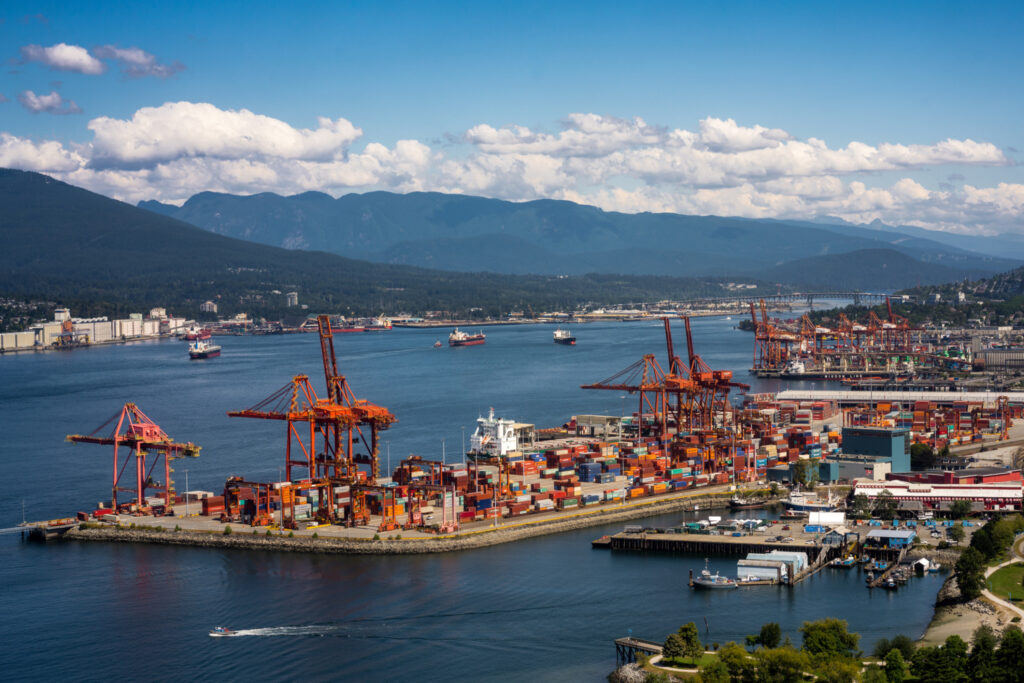B.C. port workers on strike
Port workers across British Columbia formally went on strike on Saturday after negotiations supported by federal mediators failed to produce a deal to keep more than 7,000 employees on the job.
The BC Maritime Employers Association issued a statement saying talks with the International Longshore and Warehouse Union Canada took place throughout the night, but negotiators were unable to secure an agreement and workers walked off the job in the morning.
“Over the course of the past couple of days, the BCMEA has continued to advance proposals and positions in good faith, with the objective of achieving a fair deal at the table,” the statement read. “Our Bargaining Committee has made repeated efforts to be flexible and find compromise on key priorities, but regrettably, the Parties have yet to be successful in reaching a settlement.”
The union served a 72-hour strike notice on Wednesday, but could not immediately be reached for comment on Saturday.

Federal Labour Minister Seamus O’Regan said Saturday the parties continue to negotiate, adding “the best deals for both parties are reached at the table.”
The Canadian Federation of Independent Business said it’s “very concerned” about the strike action, urging all involved parties to cut a deal “as quickly as possible.”
“A strike could have serious consequences for our economy and our small businesses. Port operations must remain fluid so as not to exacerbate supply chain disruptions and put further pressure on costs, at a time when we are still facing high inflation,” the federation said Saturday. “It’s important to remember that strike-related delays can be costly for small businesses, which could lose sales as a result.”
The strike affects about 7,400 terminal cargo loaders and 49 of the province’s waterfront employers at more than 30 B.C. ports.
In early June, 99.24% of union membership voted in favour of strike action.
The ILWU did not provide a 72-hour strike notice on June 21, the earliest possible date for such an action after receiving the authorization vote from its members.
That notice came instead on June 28, with the ILWU issuing a statement at the time that accused the employers’ association of demanding “major concessions” from the union despite “record profits during the COVID-19 pandemic.” The strike notice came nearly three months after the last contract expired on March 30.
The union also said it was seeking to protect members from the “erosion” of work stemming from outside contract workers and port automation.
The association represents 49 private-sector employers operating in B.C. ports, and its website says the industry contributes $2.7 billion to Canada’s GDP while handling roughly 16% of the country’s total traded goods, amounting to $180 billion in 2020.
On Friday both the union and employer confirmed the strike would not affect cruise ships docked in Vancouver, Prince Rupert or Vancouver Island.
Have your say
This is a moderated forum. Comments will no longer be published unless they are accompanied by a first and last name and a verifiable email address. (Today's Trucking will not publish or share the email address.) Profane language and content deemed to be libelous, racist, or threatening in nature will not be published under any circumstances.
Poet automation is a very good idea but the use of cheap outside contract workers often at less than $23 / hr and came in on student visa needs to be stopped in B C and Ontario at all transportation and warehouses 8ncludimg ports and airports
Why do workers have to go on strike to get more take-home money?? And politicians don’t do strike they vote themselves a fat increase of pay and never told us about it???